Detox 15 Days
The lymphatic system and the immune system are virtually connected
Are you constantly feeling sick? Feeling tired and run down all the time? Your immune system might be the culprit. Your immune system acts as a defense mechanism, protecting your body against harmful bacteria, viruses, and other pathogens. But did you know that the lymphatic system plays a crucial role in supporting your immune system?
The lymphatic system and the immune system are virtually connected, working hand in hand to keep you healthy. The lymphatic system is a network of vessels and organs that help remove toxins, waste, and other unwanted substances from your body. It also transports immune cells, such as lymphocytes, which help fight off infections and diseases.
When the lymphatic system is not functioning properly, plugged up from being neglected, it leads to a weak immune system. This leaves you more susceptible to infections and illnesses. It's important to understand the connection between these two systems and take steps to support their health.
In this article, we will explore the link between the lymphatic system and the immune system. By understanding how these two systems work together, you can imagine how we can help strengthen your immune system with lymphology and detox cleanse. So let's dive in and discover the fascinating connection between your immune system and the lymphatic system.
Functions of the lymphatic system
The lymphatic system is a vast network of vessels, tissues, and organs that play a crucial role in maintaining the body's overall health and well-being. This intricate system is responsible for a variety of essential functions, each contributing to the smooth operation of the human body. It is essential that you work the lymphatics if you detox in 15 days.
One of the primary functions of the lymphatic system is to serve as the body's waste disposal and filtration system. It works tirelessly to remove toxins, waste products, and other unwanted materials from the bloodstream, preventing them from accumulating and causing harm. This process is facilitated by a network of lymphatic vessels that transport lymph fluid, a clear liquid containing white blood cells, throughout the body.
Another vital function of the lymphatic system is its role in the immune response. The lymphatic system is home to a variety of immune cells, including lymphocytes, such as T cells and B cells, which are responsible for identifying and neutralizing threats to the body. These cells are produced and stored in various lymphatic organs, such as the spleen, thymus, and lymph nodes, where they can be deployed to fight off infections and diseases.
Relationship between the immune system and the lymphatic system
The immune system and the lymphatic system are intrinsically linked, working in tandem to maintain the body's overall health and well-being. The lymphatic system plays a crucial role in supporting the immune system by providing a pathway for the transportation of immune cells and facilitating the body's immune response.
When the body is exposed to a foreign invader, such as a virus or bacteria, the lymphatic system springs into action. Lymph nodes, located throughout the body, act as checkpoints, trapping and filtering out these harmful pathogens. As the lymph fluid passes through the nodes, immune cells, such as T cells and B cells, are able to identify and target the invaders, initiating an immune response. Doing a detox in 15 days will help you here also.
This close relationship between the lymphatic system and the immune system is further highlighted by the fact that many of the same organs and tissues are involved in both systems. For example, the spleen, which is part of the lymphatic system, is responsible for filtering blood and removing old or damaged red blood cells. It also plays a crucial role in the body's immune response by housing a large number of lymphocytes.
Factors that weaken the immune system
While the immune system and the lymphatic system work together to keep the body healthy, there are various factors that can weaken the immune system, leaving individuals more susceptible to illness and infection.
One of the primary factors that can weaken the immune system is stress. Chronic stress can take a toll on the body, leading to the release of hormones like cortisol, which can suppress the immune system's ability to function effectively. This can make individuals more vulnerable to a wide range of illnesses, from the common cold to more serious conditions.
Poor diet and nutrition can also have a detrimental effect on the immune system. A diet lacking in essential vitamins, minerals, and antioxidants can impair the body's ability to fight off infections and diseases. Additionally, the consumption of processed foods, sugar, and unhealthy fats can contribute to inflammation, further weakening the immune system.
The biggest factor that weakens the immune system is the lack of lymphatic system mobilization. Your lymphatic system only moves when you do, it is not like your heart pumping blood. The less you move it for example, as you get older you do less exercise, the less toxins you expel. So over time you actually heighten or increase the toxic load of your body if you do not mobile this critical bodily system right. As the lymphatic system is critical to the immune system and it gets plugged up way easier than it ever did before in anyones' body due to the toxicity of today's world, it is even more critical that you do lymphatic system work, workouts, detox.
Understanding lymphatic drainage and its role in immune health
The lymphatic system is responsible for the drainage and filtration of lymph fluid throughout the body. This process, known as lymphatic drainage, is crucial for maintaining the health and function of the immune system.
When the lymphatic system is not functioning properly, or when lymphatic drainage is impaired, it can lead to a buildup of toxins, waste, and other harmful substances in the body. This can have a direct impact on the immune system, making individuals more susceptible to illness and infection. Even a detox in 15 days helps dramatically, especially if you already eat healthy.
One of the primary causes of impaired lymphatic drainage is a sedentary lifestyle. Without regular physical activity, the lymph fluid can become stagnant, leading to a buildup of toxins and a weakened immune system. Additionally, certain medical conditions, such as lymphedema, can also disrupt the lymphatic system's ability to effectively drain and filter lymph fluid.
Conclusion and the importance of taking care of your immune system
In conclusion, the lymphatic system and the immune system are inextricably linked, working together to maintain the body's overall health and well-being. By understanding the crucial role that the lymphatic system plays in supporting the immune system, individuals can take proactive steps to support both systems and improve their overall health. By doing a detox in 15 days it is better than a 10 day detox and if you incorporate the lymphology and the lymphatic system it is even better.
One of the most important things individuals can do to support their immune system is to prioritize lymphatic health. This can be achieved through regular exercise, which helps to stimulate lymphatic drainage, as well as through the use of lymphatic massage and other lymphatic-focused therapies.
Additionally, individuals can support their immune system by maintaining a healthy diet, managing stress levels, and getting adequate sleep. By taking a holistic approach to immune health, individuals can not only reduce their risk of illness and infection but also improve their overall quality of life.
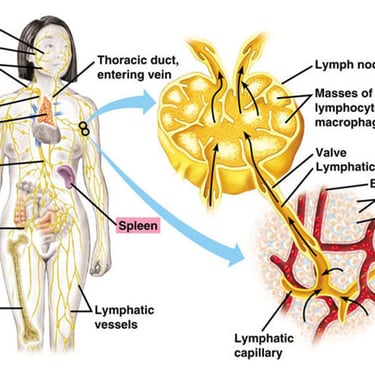
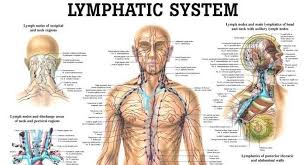
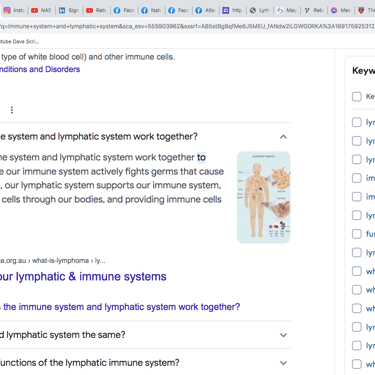
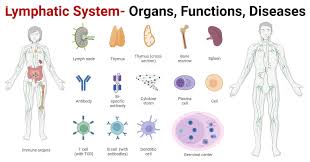

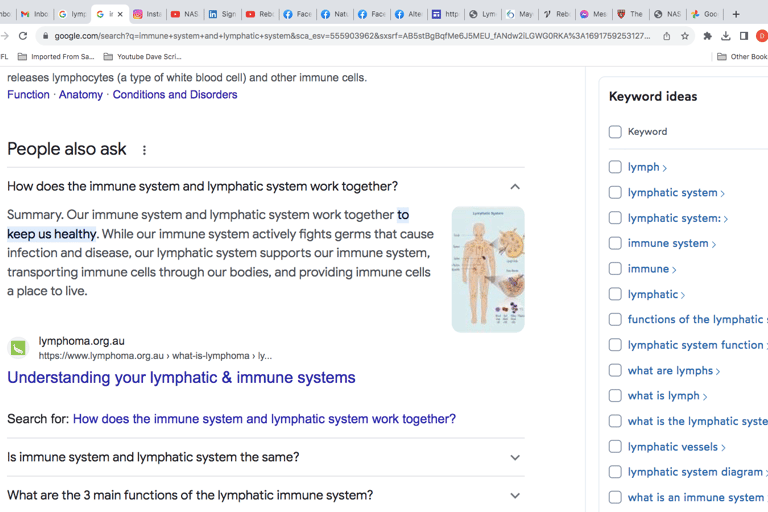



Immune
Learn about lymphatic system and body detox benefits today.
Health
Cleanse
343-999-9498
© 2024. All rights reserved.
